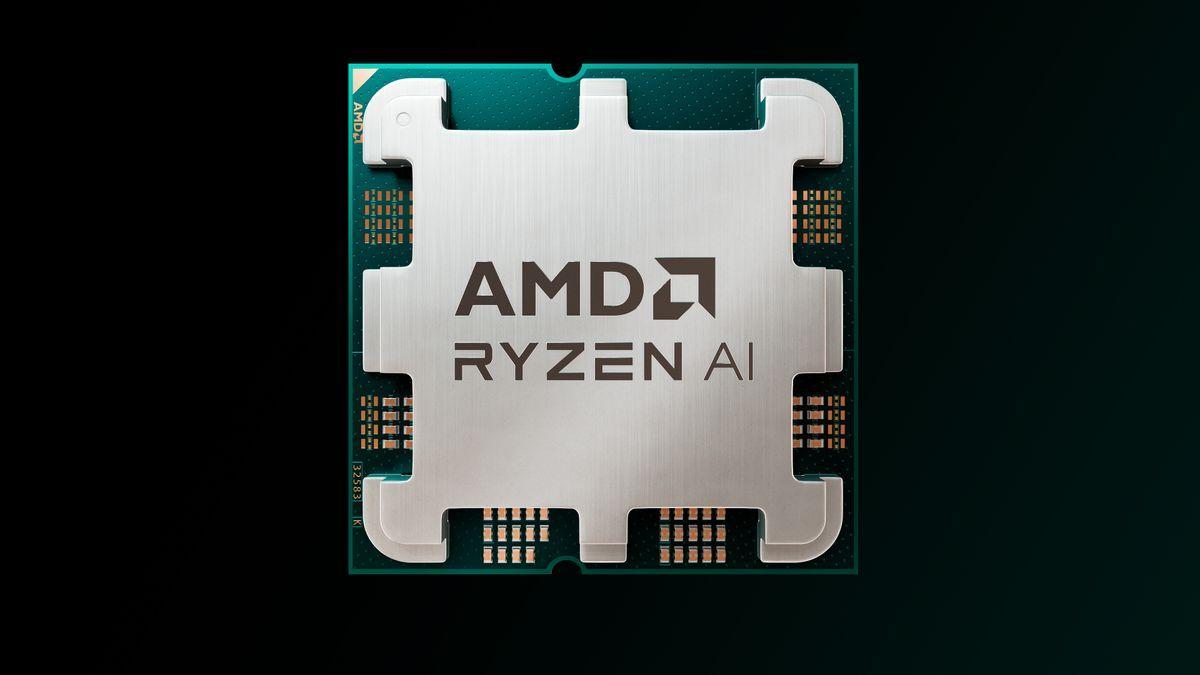AMD Unveils Zen 6 and Zen 7 CPU Roadmap: 2nm Process Technology and Enhanced AI Capabilities Coming in 2026-2027
5 Sources
5 Sources
[1]
AMD confirms Zen 7 CPU plans, offers look at GPU, NPU roadmap
AMD's roadmap marches on: the company confirmed the presence of its next-generation Zen 7 architecture, and talked briefly about the company's next-generation PC graphics roadmap as well. AMD hosted a day for financial analysts on Tuesday, outlining its businesses for a cadre of Wall Street investors and analysts. Unfortunately, the agenda reflected AMD's new corporate priorities: with the bulk of AMD's revenue now coming from its datacenter business, AMD scheduled just twenty minutes for its client businesses. AMD chief executive Lisa Su also identified the datacenter as "the most strategic business" for AMD. Before it did, however, AMD also revealed some brief details of its architectural roadmaps., where AMD chief technology officer Mark Papermaster announced that AMD was working on Zen 7, its next-generation CPU architecture. That will underpin AMD's Ryzen CPUs, where in the desktop Su said that AMD commands over 50 percent of the desktop CPU channel. "We've delivered five generations of the Zen CPU," Papermaster said. "We split it into high performance versions, power and compact, cloud optimized version also used in our networks, but all maintaining a consistency of instruction set architecture. We went where no company was willing to go in the bet we made with chiplets." AMD's Zen 5 architecture is the foundation of the Ryzen 9000 family. The Zen 6 architecture will debut in the company's next-gen EPYC processor for servers, debuting this year, Papermaster said. Papermaster didn't say anything about Zen 7, though he showed it on a roadmap slide. (That slide didn't include an estimated ship date, either.) AMD continues to stagger its design teams, assigning one team to each architecture generation and going back and forth. (That means that the Zen 5 team is now shifting to work on Zen 7.) AMD also continues to develop two types of cores for each Zen architecture, one focusing on performance and the other focusing on power. Papermaster also provided an early look at AMD's desktop graphics roadmap, though without revealing many details. AMD is equally interested in improving the performance of its desktop GPUs as well as other edge applications where it can apply GPU compute. Papermaster also showed off some of the improvements AMD is considering for its NPU roadmap as well. There, AMD plans more AI TOPS and more power efficiency, without going into details. Jack Huynh, the senior vice president who heads the Computing and Graphics Group at AMD, did not go into additional details, though he did indicate that AMD plans to move into edge AI as well as its existing markets in the mobile, workstation, and desktop markets. AMD has a "no compromise" PC strategy he said, infusing AI into everything the company does. "We've built tremendous momentum, and we have a clear path to market leadership," Huynh said. "Now we're entering a new era. AI is transforming the PC experience and redefining what compute means across every device in our portfolio. This is not just another product cycle, it's a once in a generation shift towards expanding our opportunity across every segment. Our next chapter is about scaling the client business, deepening our council advantage, and unlocking new growth with AI at the edge. If I can leave you one thought today, it's we are ready to lead the gaming and AI PC era."
[2]
AMD's next-gen Zen 6 EPYC Venice CPU: over 70% more performance, 30% more thread density
TL;DR: AMD will launch its next-generation Zen 6-based EPYC "Venice" CPUs in 2026, featuring up to 256 cores, 70% performance and efficiency gains, and 30% higher thread density. Built on TSMC's advanced 2nm process with nanosheet transistors, these processors deliver significant improvements for data centers and AI workloads. AMD will be launching its next-generation Zen 6-based EPYC "Venice" CPUs in 2026, which will rock a huge 70% performance and efficiency leap over the current-gen Zen 5 EPYC chips, 30% more thread density, and more. AMD's upcoming Zen 6 EPYC "Venice" CPUs will be fabbed on TSMC's new bleeding-edge 2nm (N2P) process node, with up to 256 cores and 512 threads (256C/512T) of Zen 6 processing power. In AMD's official slides, EPYC Venice CPUs will have 70% more performance and efficiency, and a 30% improvement in thread density. Zen 6 EPYC Venice CPUs will pack a huge 256C/512T of processing power, which is a 33.3% improvement over Zen 5 EPYC Turin, which tops out at 192C/384T. Not only that, there are optimizations and improvements with Zen 6, on top of the fact that it's fabbed on TSMC's latest 2nm process node. The entire Zen 6 family of processors -- Olympic Ridge for desktop, Medusa for laptops -- are fabbed on TSMC N2P. 70% more performance and efficiency is a great feat for AMD, where these improvements come from a variety of different factors. AMD will have made some great IPC improvements, clock rates, architectural improvements, as well as leaning on TSMC's bleeding-edge 2nm process node with a transition away from FinFET to Nanosheet transistors (GAA), which offers 10-15% more performance at the same power, 25-30% lower power consumption with the same performance, and up to 15% higher transistor density. Not only will AMD be launching its next-gen EPYC "Venice" CPUs, but it will simultaneously launch its next-gen Instinct MI400 AI accelerator series. During AMD's recent Q3 2025 earnings call, Lisa said that AMD's new MI400 series AI accelerators combine a new compute engine with industry-leading memory capacity -- 432GB of next-gen HBM4 memory and 19.6TB/sec bandwidth -- and advanced networking capabilities to "deliver a major leap in performance for the most demanding AI training and inference workloads".
[3]
AMD's confirms Zen 6 on TSMC 2nm, officially confirms future-gen Zen 7 on an even newer node
TL;DR: AMD's updated roadmap reveals Zen 6 CPUs launching in 2026 on TSMC's 2nm process, delivering improved IPC, AI features, and higher performance for Ryzen and EPYC. Future Zen 7 architecture will use a "Future Node." New APUs with RDNA 5 GPUs and advanced AI capabilities are planned for 2027. AMD has just updated its CPU roadmap at its Financial Analysts Day, confirming both the upcoming next-gen Zen 6 but also future-gen Zen 7 CPU architectures, with Zen 7 being made on a "Future Node". Zen 6 will be unleashed in 2026, with AMD having an industry-first debut on TSMC's new flagship 2nm process node, with AMD CTO Mark Papermaster noting that both Zen 6 and Zen 6c will enjoy IPC improvements and more performance, as well as more AI features for Ryzen and EPYC families of processors. AMD confirmed what the leaks have suggested for a while now, with more on that in the links above, with "Gorgon" and "Medusa" CPUs launching in 2026 and 2027, respectively. Gorgon Point APUs will be released in 2026 but they're still based on the current Zen 5 CPU, with an upgraded RDNA 3.5-based GPU like its Strix Point and Strix Halo APUs. However, Medusa Point and Medusa Halo APUs will feature next-gen Zen 6 CPU cores, a next-gen RDNA 5-based GPU, and next-gen XDNA for AI workloads in 2027. In leaks that we've covered previously, AMD's flagship Medusa Halo APU would feature 24C/48T of Zen 6 CPU power, 48 CUs of RDNA 5 GPU power, and either LPDDR6 or LPDDR5X memory controller, possibly offering up to GeForce RTX 5070 Ti levels of gaming performance. AMD's next-gen Zen 6 processors leaked so far: Olympic Ridge & Gator Range: AM5 + FL1 sockets, TSMC N2X CCD chiplets + N3P IOD chiplet (or N6) * N3P IOD = 2 x 12-core Zen 6 + 2-core Zen 5 LP = 26 cores total (24+0+2) targeting over 6.0GHz clock speeds (6nm IOD likely has no LP cores) * There are references to both a TSMC N3P IOD without a decent iGPU, and also a TSMC N6 IOD with weaker (or no) graphics and less features. It's plausible that AMD will use N6 IODs for budget AM5 SKUs. * 128-bit DDR5 memory controller Medusa Point Big (MD51): FP10 socket, TSMC N2P CCD chiplet + N3P IOD chiplet (and/or N3P monolithic) * Chiplet variant = 1 x 12-core Zen 6 chiplet + 2-core Zen 5 LP = 14 cores total (12+0+2) (may get Zen 5 LP instead of Zen 6 LP for time to market) * Monolithic variant = 4-core + 8-core Zen 6c + 2-core Zen 5 LP = 14 cores total (4+8+2) (may get Zen 5 LP instead of Zen 6 LP for time to market) * 8-16 CU RDNA 4 or 3.5 (+) iGPU (both architectures are referenced as possibilities, and there are different CU counts referenced between documents of different variants) * 128-bit LPDDR5X memory controller * There are references to both an "N2 powderdorn CCD" for "AI 9 products" and a "monolithic N3P die" for "AI 7 / AI 5" class products (it seems "MD51" includes both high-end and mid-range variants) Medusa Point Little (MD52): FP10 socket, TSMC N3P monolithic * 2 or 4-core Zen 6 + 4-core Zen 6c = 8-10 cores total (2 or 4+4+2) (AMD has not yet decided if they want to go with 2 or 4 "full" Zen 6 cores) * 4 CU RDNA 4 or 3.5 (+) iGPU (both architectures are referenced as possibilities, and there are different CU counts referenced between documents of different variants) * 128-bit LPDDR5X memory controller * "MD52" is specifically listed as targeting "AI 5" and "AI 3" class products Bumblebee (MD53): FP10 and/or FP8 socket: TSMC N3C monolithic * 2-core Zen 6 + 2-core Zen 6c + 2-core Zen 6 LP = 6 total cores (2+2+2) * 2-4 CU RDNA 4 or 3.5 (+) iGPU (both architectures are referenced as possibilities) * 128-bit LPDDR5X memory controller * "MD53" is specifically listed as targeting the "budget laptop" market Medusa Halo (MD5H): FP12 + FP11 sockets, TSMC N2P core chiplets + N3P IOD chiplet
[4]
AMD Confirms Zen 6-Powered Medusa CPUs For 2027, Next-Gen Gaming GPUs With Improved AI & Raytracing
AMD has confirmed its next-gen client CPU & GPU families, Gorgon in 2026, Medusa in 2027, and next-gen gaming products. 2025 has been a solid year for AMD's Client division, with an estimated revenue of $10 billion, a 50% increase in CPU ASP, and a PC revenue share of around 28%. This is all due to AMD's strong Ryzen & Radeon offerings, but it doesn't stop here as 2026 will soon be upon us, and we can expect even more high-performance processor and graphics lineups from Team Red. For the client side, AMD's SVP and general manager of the Computing and Graphics Group, Jack Huynh, presented the latest AI PC roadmap, which brings to light two new products, Gorgon and Medusa. AMD also states that its lineup is on track for >10x AI performance increase with Medusa processors, so let us talk a bit about these two products. AMD's Gorgon Point CPUs will be launching in 2026, and are an interesting product in the regard that they are essentially a refresh of existing "Strix/Krackan" processors. Gorgon Point family will add a few new SKUs to the lineup, while retaining the Zen 5 CPU, RDNA 3.5 GPU, and XDNA 2 NPU architecture across all models. This lineup will be replaced by the true next-gen offering, codenamed Medusa Point. The Medusa CPU line is expected to feature next-gen Zen 6 cores along with new GPU and XDNA IPs. Medusa will be one of the many Zen 6 families that will be launching, such as the EPYC Venice lineup and the high-end Ryzen desktop range, codenamed Olympic Range. In addition to the two CPU announcements as part of the new roadmap, AMD also reaffirmed that it will introduce its next-gen gaming GPU with next-gen AI and ray-tracing capabilities. While every previous gen is listed as an "RDNA" series part, AMD didn't use the "RDNA" naming for its next-gen gaming GPU, which means that the upcoming architecture will mark the end of the "RDNA" series and move to something entirely new. As for the features to expect from AMD's next-gen gaming GPUs, the company has already highlighted a few things we will get with the next-gen architecture, such as Radiance Cores, Neural Arrays, and Universal Compression Engine. The same architecture will be used by gaming graphics cards and gaming consoles, so a lot of excitement surrounds this announcement, and we hope for more information on the respective family at CES 2026.
[5]
AMD Confirms Next-Gen Zen 6 "2nm" & Zen 7 "Future Node" CPU Core Architectures: Zen 6 Boosts Performance/Efficiency, Zen 7 Features New AI Engines
AMD has presented its latest Zen core architecture roadmap, confirming Zen 6 and Zen 7 for future EPYC & Ryzen CPU families. AMD's Zen 6 To Offer Higher Performance & Efficiency, While Zen 7 Strengthens AI Side Too With New Engines As per the latest roadmap presented during the Financial Analyst Day 2025, AMD confirmed its Zen 6 and future Zen 7 core architectures. Zen 6 is lined up for a 2026 launch and will be leveraging TSMC's top-of-the-line 2nm process technology. Mark Papermaster stated that Zen 6 will offer even higher performance and efficiency, and will include both standard "Zen 6" flavors for high-performance and "Zen 6C" flavors for efficiency-focused platforms. In addition to Zen 6, AMD is also confirming its future Zen 7 core architecture for the first time. As per the roadmap, Zen 7 CPUs will be based on a future process technology while offering new additions besides just performance and efficiency enhancements. The lineup will feature a New Matrix Engine and support new AI Data Formats. This will build upon the Zen 6 architecture, which also adds support for new AI Data types and increases the AI pipelines. We recently covered the first details for AMD's Zen 6 ISA architecture which features a range of new instruction set capabilities as detailed here. What we know about Zen 6 is that it will be featured in the EPYC Venice lineup alongside Olympic Ridge "Ryzen Desktop" and Medusa Point "Ryzen Mobile" CPU families, along with several other lineups. AMD's Zen 7 core architecture will be landing in the next-gen EPYC Verano CPU, which are expected to land sometime around 2027. AMD Zen CPU / APU Roadmap: Follow Wccftech on Google or add us as a preferred source, to get our news coverage and reviews in your feeds.
Share
Share
Copy Link
AMD confirms its next-generation CPU architectures with Zen 6 launching in 2026 on TSMC's 2nm process and Zen 7 featuring advanced AI engines. The roadmap includes significant performance improvements and new AI capabilities for both desktop and server processors.
AMD Confirms Next-Generation CPU Architecture Plans
AMD has officially unveiled its roadmap for future CPU architectures during its Financial Analyst Day, confirming the development of both Zen 6 and Zen 7 core architectures. The announcement marks a significant milestone in AMD's processor evolution, with the company positioning itself for continued competition in both consumer and enterprise markets
1
.
Source: Wccftech
AMD Chief Technology Officer Mark Papermaster announced that the company is actively working on Zen 7, representing the next major leap in CPU architecture beyond the upcoming Zen 6 generation. The confirmation comes as AMD continues to leverage its chiplet design philosophy that has proven successful across five generations of Zen processors
1
.Zen 6 Architecture: 2026 Launch with Substantial Performance Gains
The Zen 6 architecture is scheduled for launch in 2026 and will be manufactured using TSMC's advanced 2nm process node, specifically the N2P variant. This represents AMD's industry-first adoption of TSMC's flagship 2nm technology, which utilizes nanosheet transistors instead of traditional FinFET technology
3
.The performance improvements promised by Zen 6 are substantial. AMD's EPYC Venice processors, based on Zen 6 architecture, will deliver over 70% more performance and efficiency compared to current Zen 5 EPYC chips, along with 30% higher thread density. The server-grade processors will feature up to 256 cores and 512 threads, representing a 33.3% improvement over the current Zen 5 EPYC Turin's maximum of 192 cores and 384 threads
2
.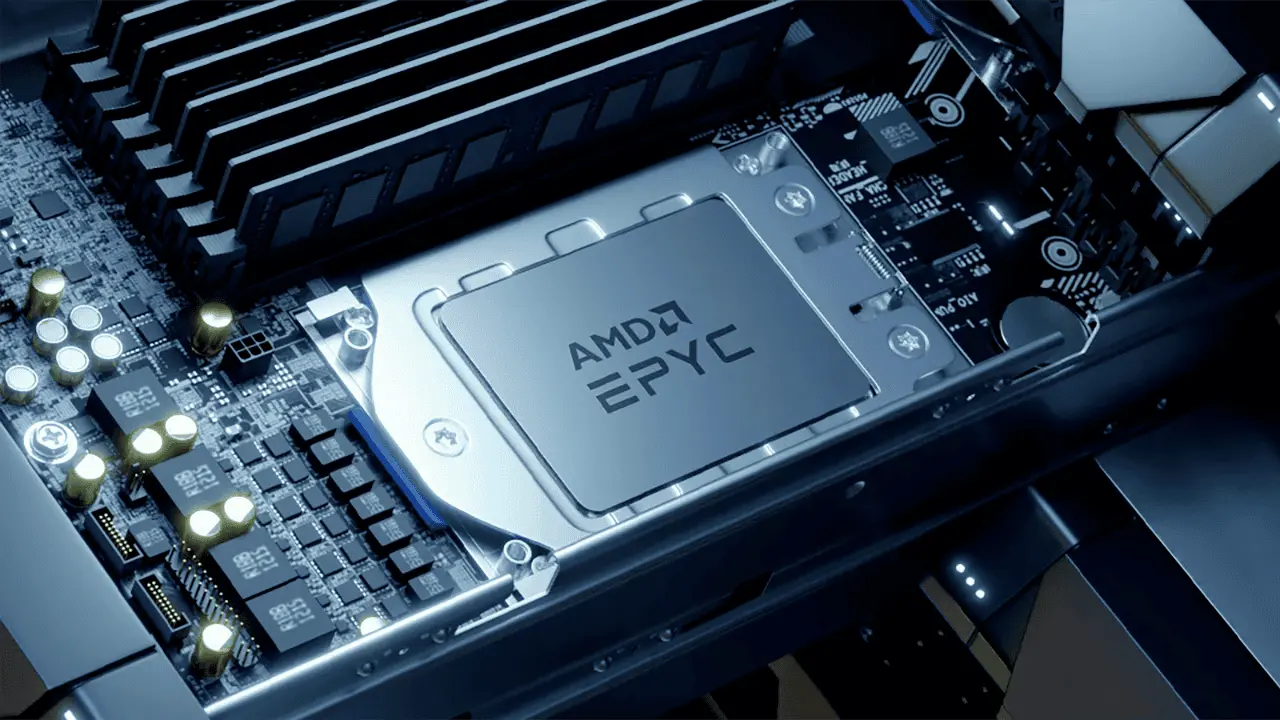
Source: TweakTown
Enhanced AI Capabilities and New Product Families
Zen 6 will introduce significant improvements in AI processing capabilities, featuring enhanced AI pipelines and support for new AI data types. The architecture will be implemented across multiple product families, including Olympic Ridge for desktop processors, Medusa Point for mobile processors, and EPYC Venice for server applications
5
.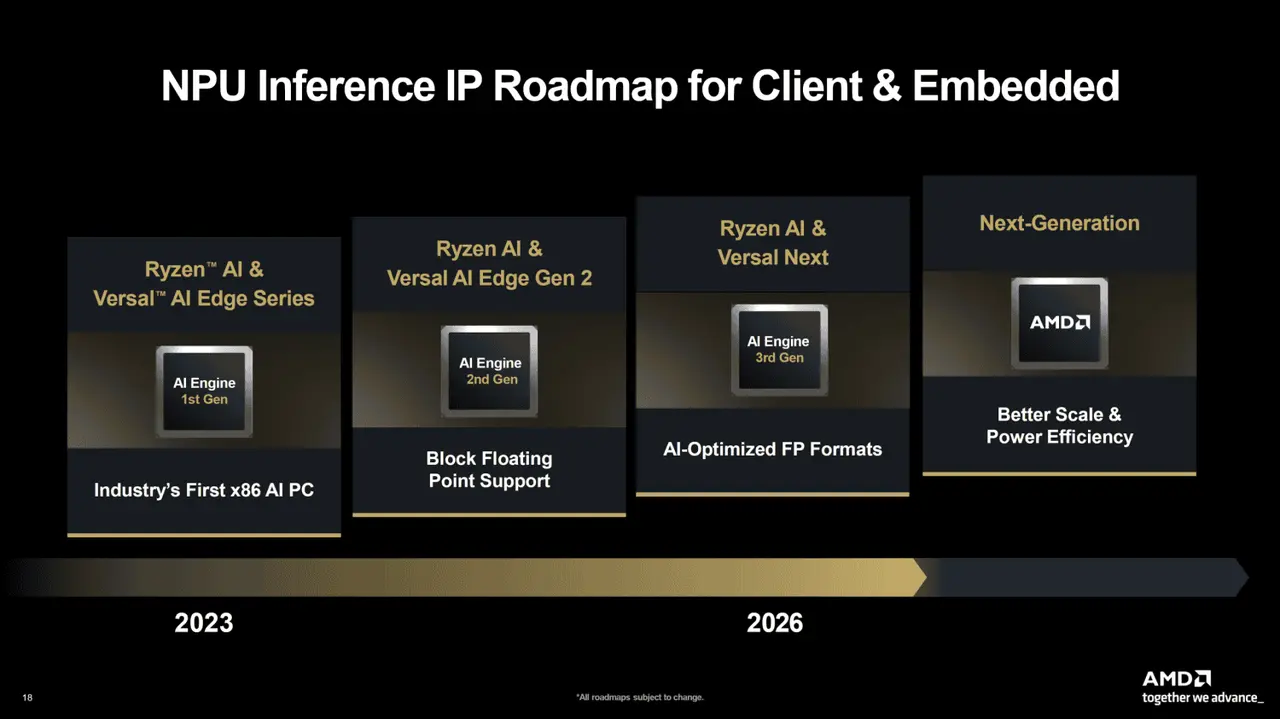
Source: TweakTown
The Medusa Point family, launching in 2027, will combine Zen 6 CPU cores with next-generation RDNA 5 GPUs and advanced XDNA AI processors. Leaked specifications suggest the flagship Medusa Halo APU could feature 24 cores and 48 threads of Zen 6 processing power, paired with 48 compute units of RDNA 5 graphics capability, potentially delivering gaming performance comparable to GeForce RTX 5070 Ti levels
3
.Related Stories
Zen 7: Future Node Technology and Advanced AI Integration
While details remain limited, AMD has confirmed that Zen 7 will be manufactured on a "Future Node" process technology, suggesting an even more advanced manufacturing process beyond TSMC's 2nm. The architecture will feature new Matrix Engines specifically designed for AI workloads and support for additional AI data formats, building upon the AI enhancements introduced in Zen 6
5
.The Zen 7 architecture is expected to power the next-generation EPYC Verano server processors, with a projected launch timeframe around 2027. This timeline aligns with AMD's staggered development approach, where different engineering teams work on alternating generations to maintain consistent innovation cycles
5
.Graphics and AI Acceleration Roadmap
Alongside CPU developments, AMD outlined its graphics roadmap, confirming next-generation gaming GPUs with enhanced AI and ray-tracing capabilities. Notably, AMD did not use the "RDNA" naming convention for its upcoming graphics architecture, suggesting a potential rebranding or entirely new architectural approach. The new graphics architecture will feature Radiance Cores, Neural Arrays, and Universal Compression Engine technologies
4
.References
Summarized by
Navi
[2]
[3]
[4]
Related Stories
AMD Unveils Ambitious AI Plans: EPYC 'Venice' CPU with 256 Cores and Next-Gen AI Solutions for 2026-2027
13 Jun 2025•Technology
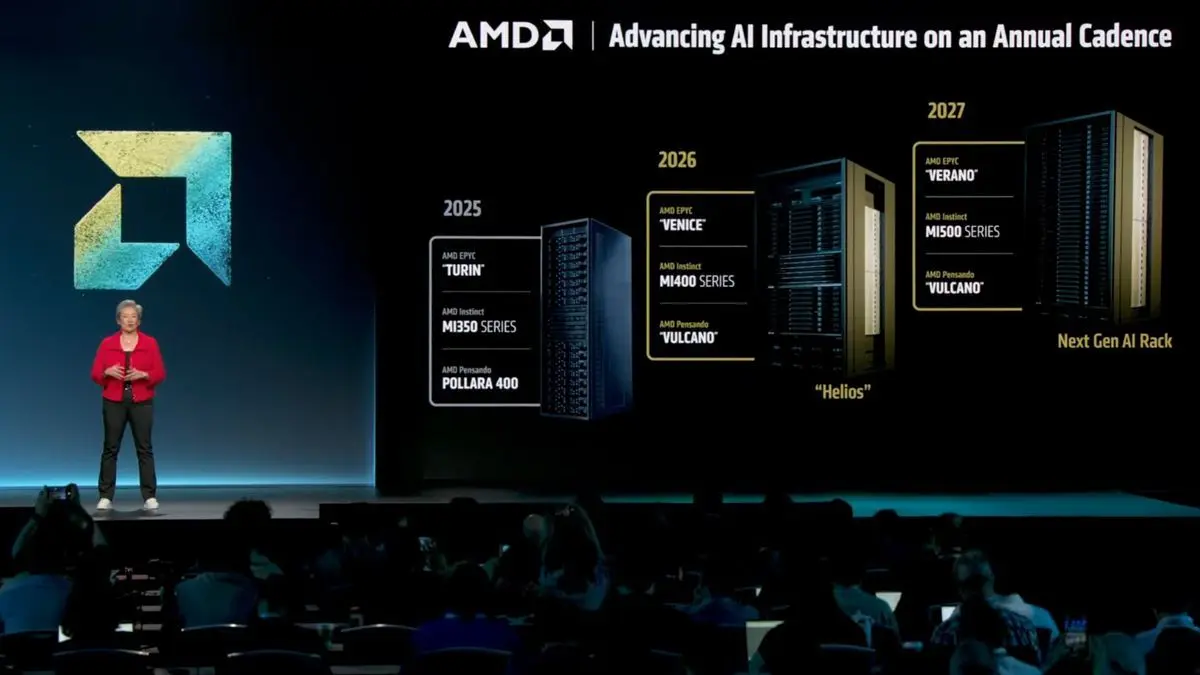
AMD unveils Helios rack-scale AI system with 72 MI455X accelerators and 256-core EPYC Venice
06 Jan 2026•Technology

AMD unveils Ryzen AI 400 Series with 60 TOPS, challenging Intel and Qualcomm in AI PC race
06 Jan 2026•Technology
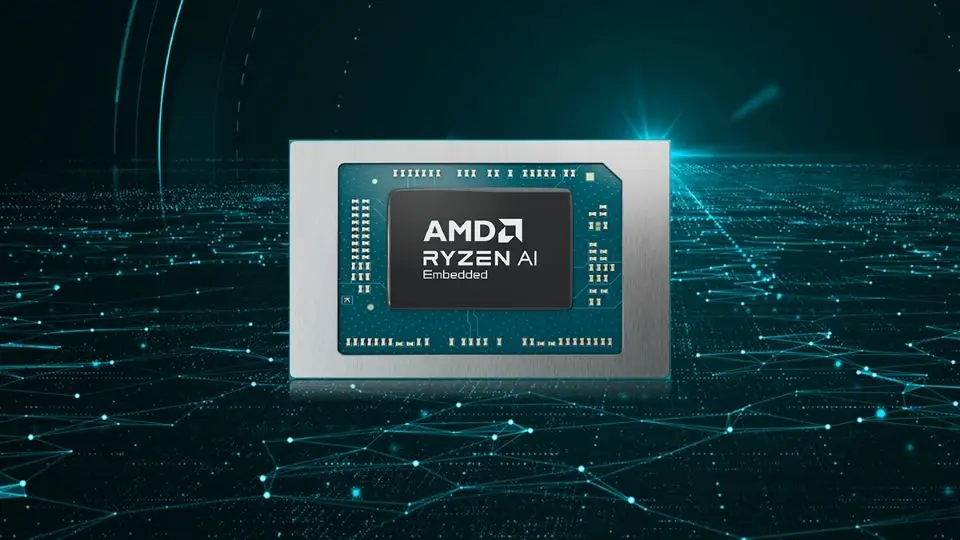
Recent Highlights
1
ByteDance Faces Hollywood Backlash After Seedance 2.0 Creates Unauthorized Celebrity Deepfakes
Technology

2
Microsoft AI chief predicts artificial intelligence will automate most white-collar jobs in 18 months
Business and Economy

3
Google reports state-sponsored hackers exploit Gemini AI across all stages of cyberattacks
Technology

